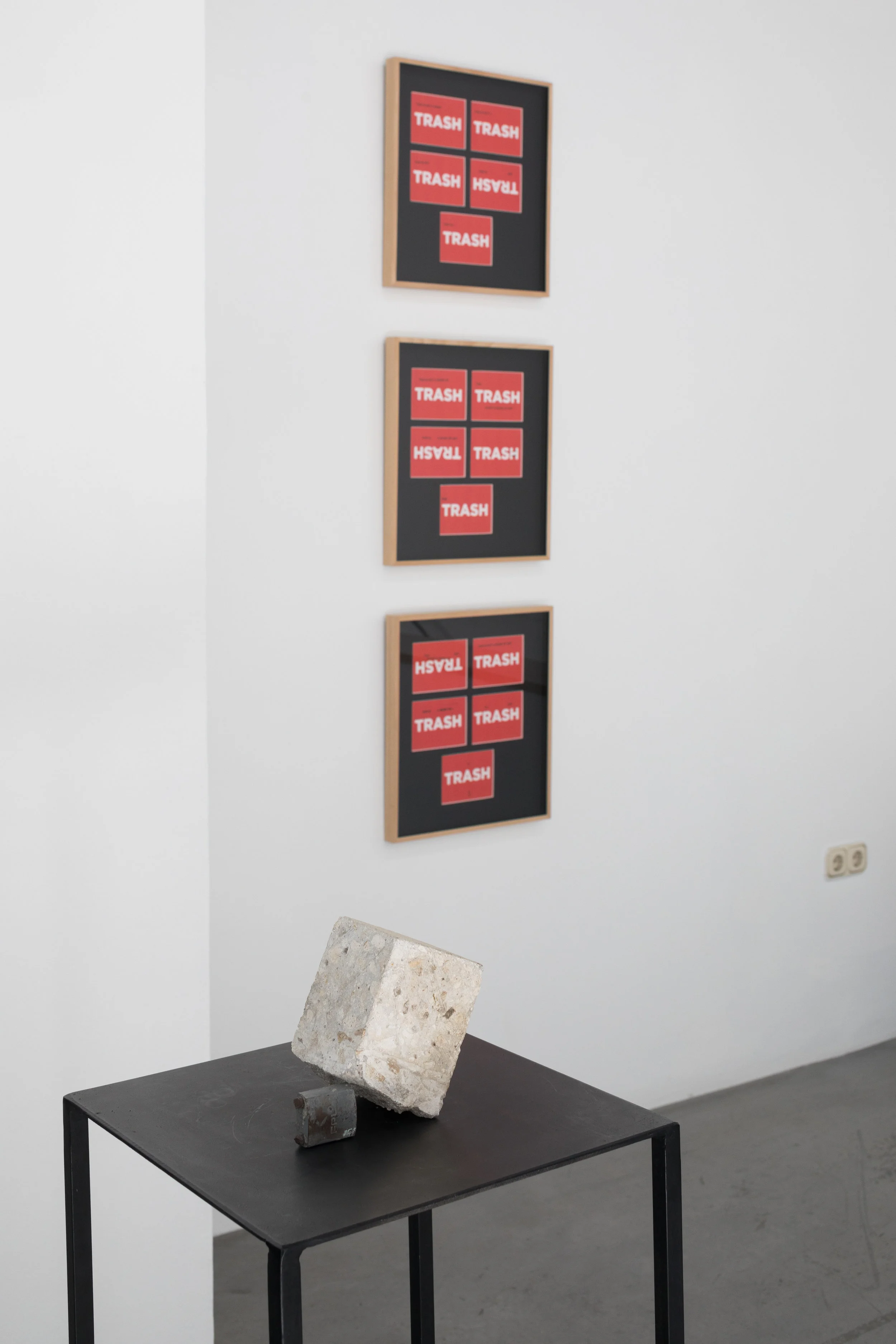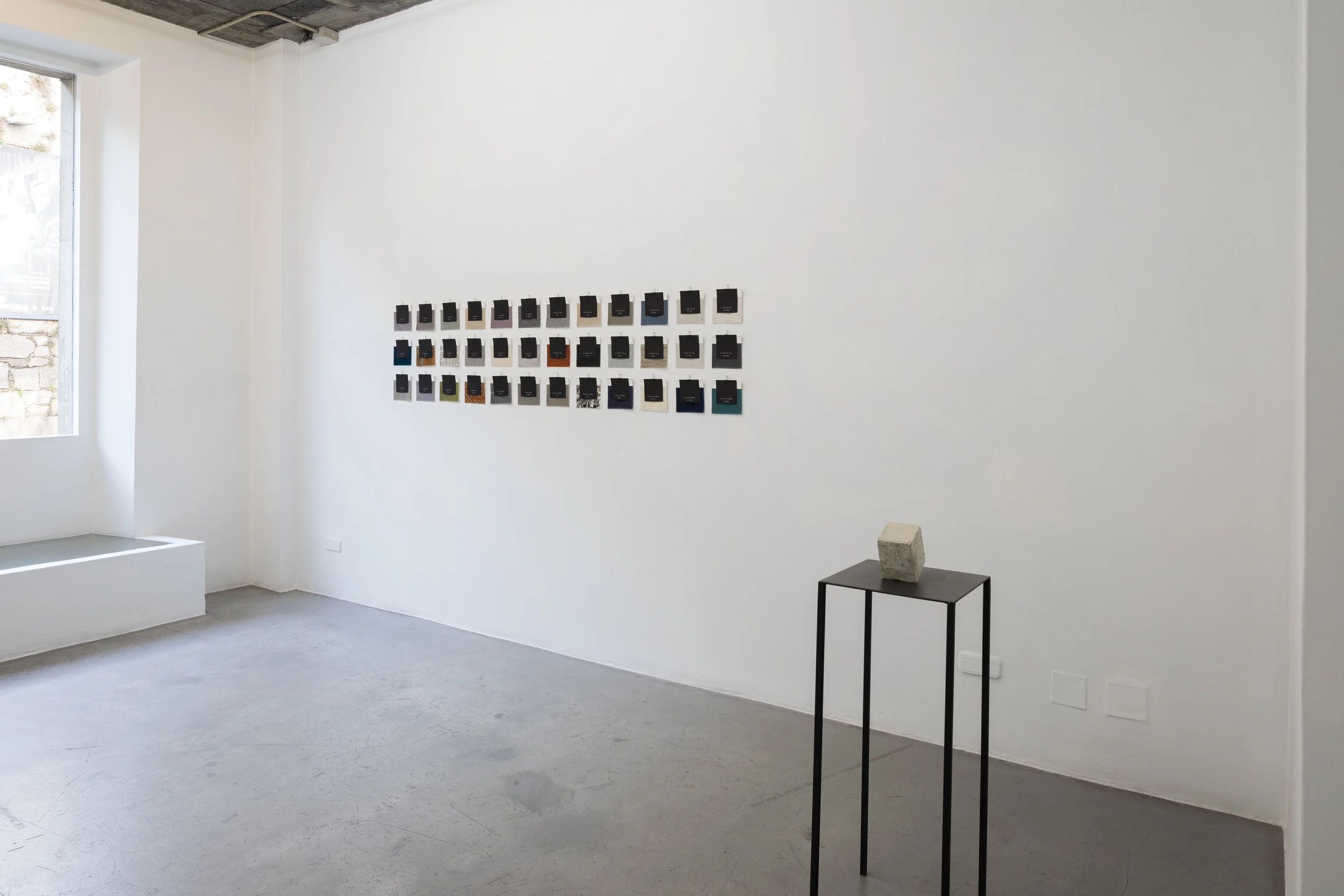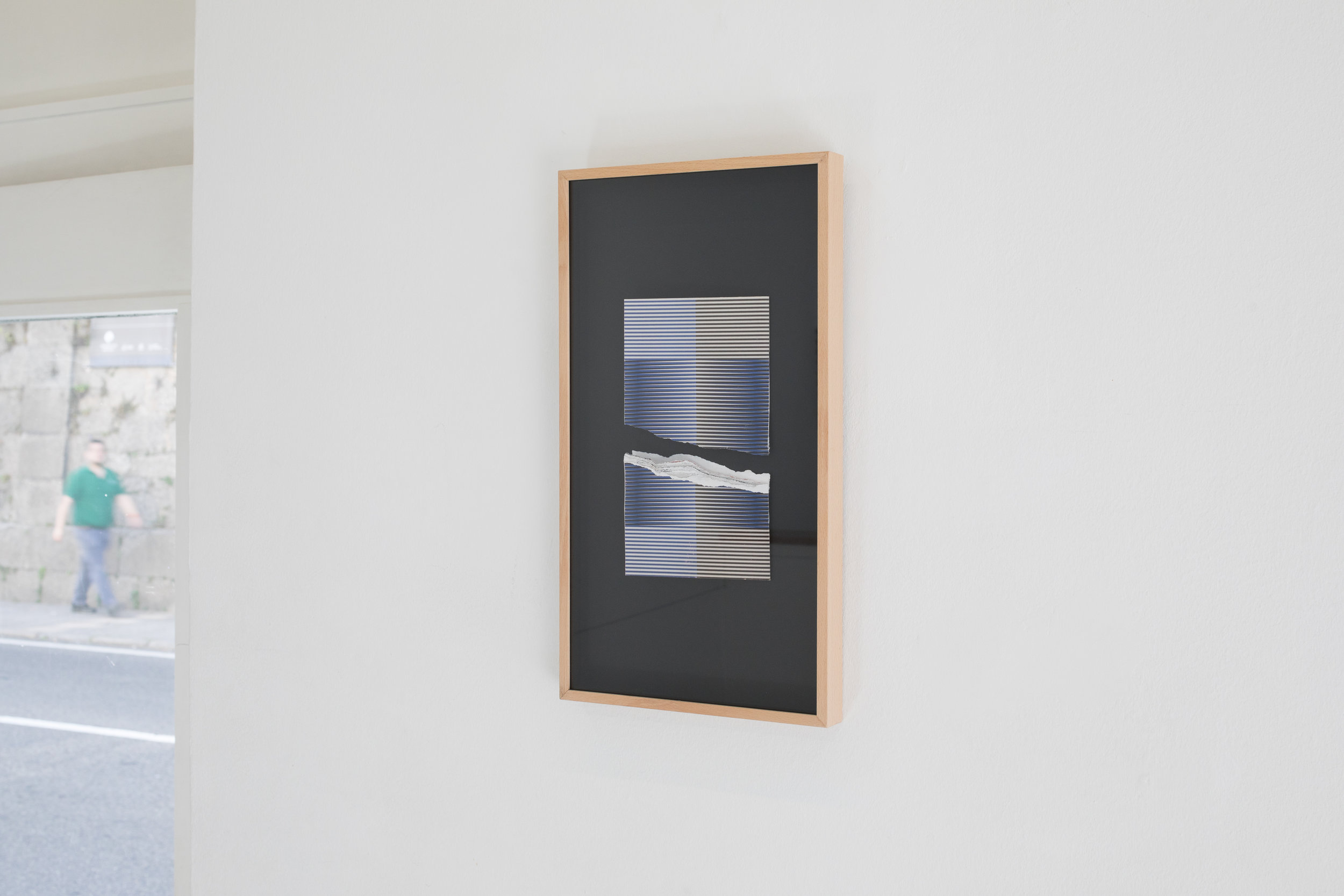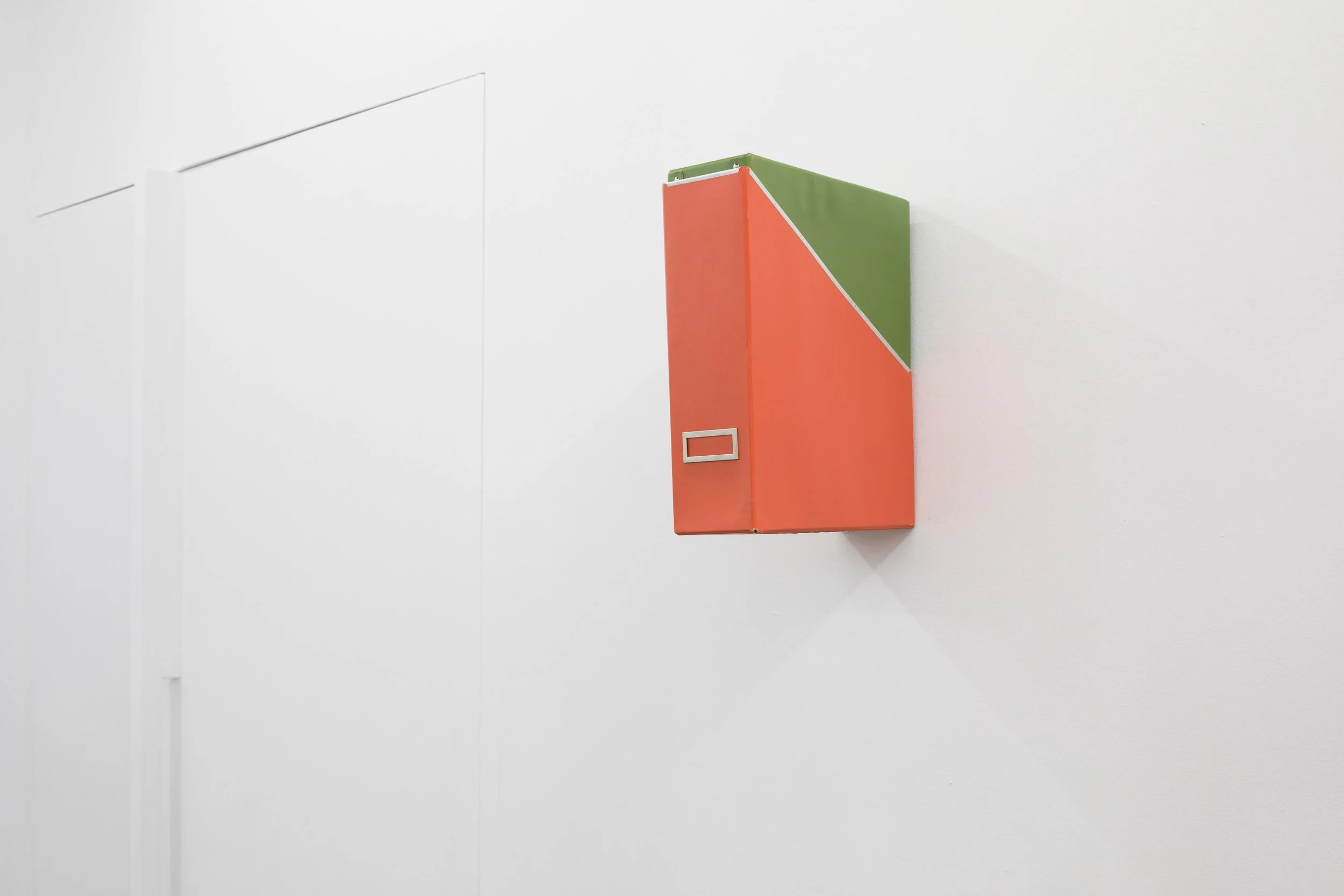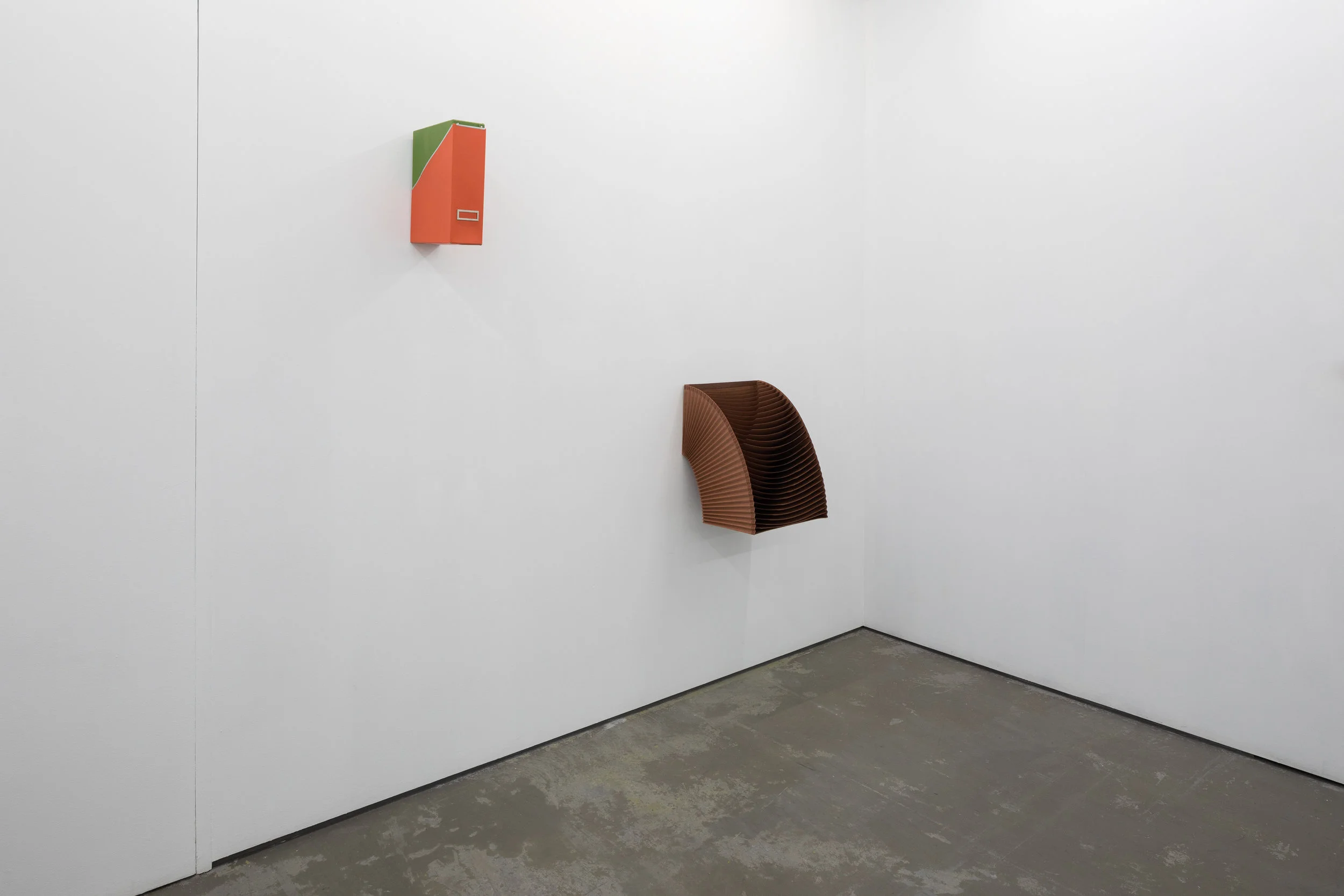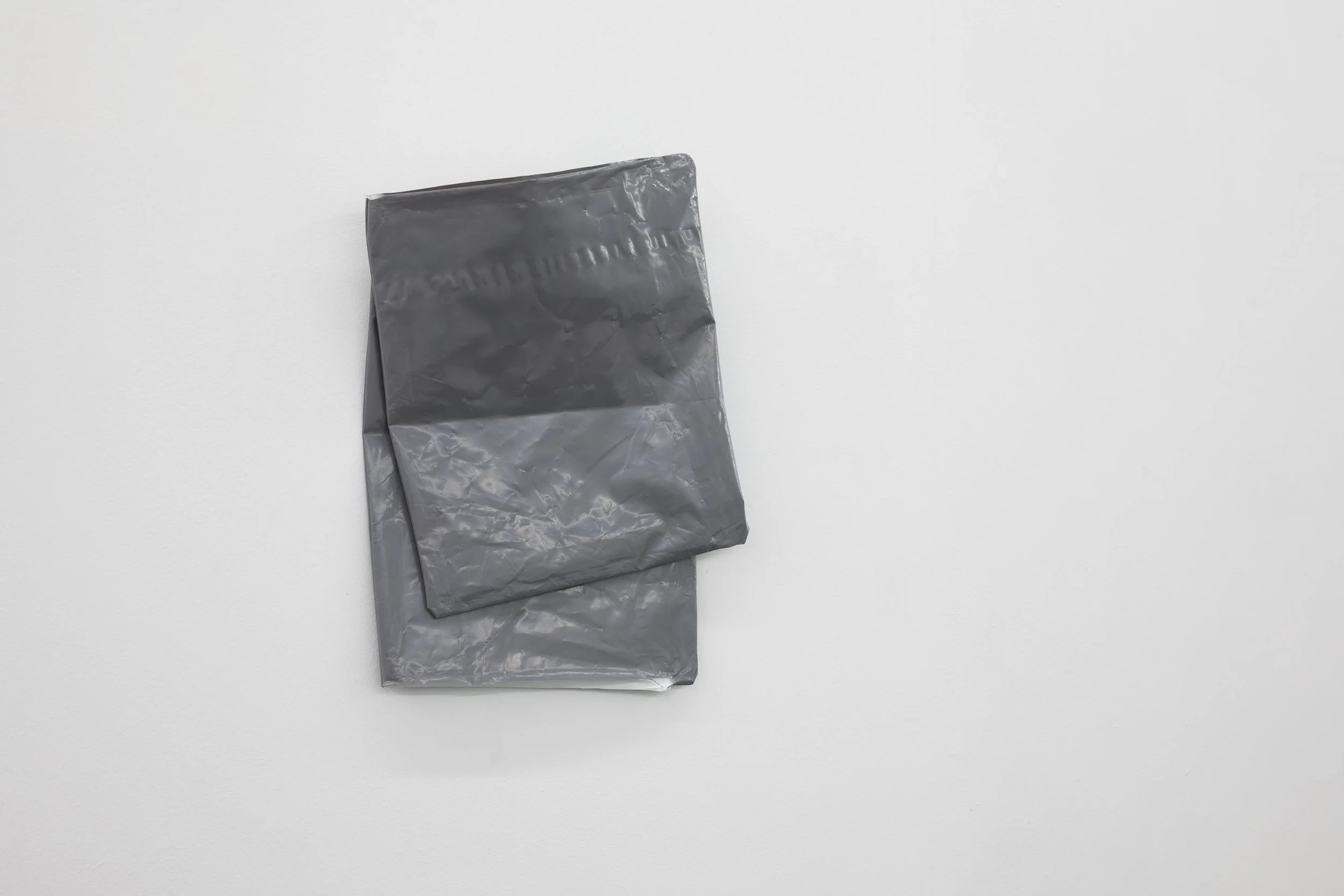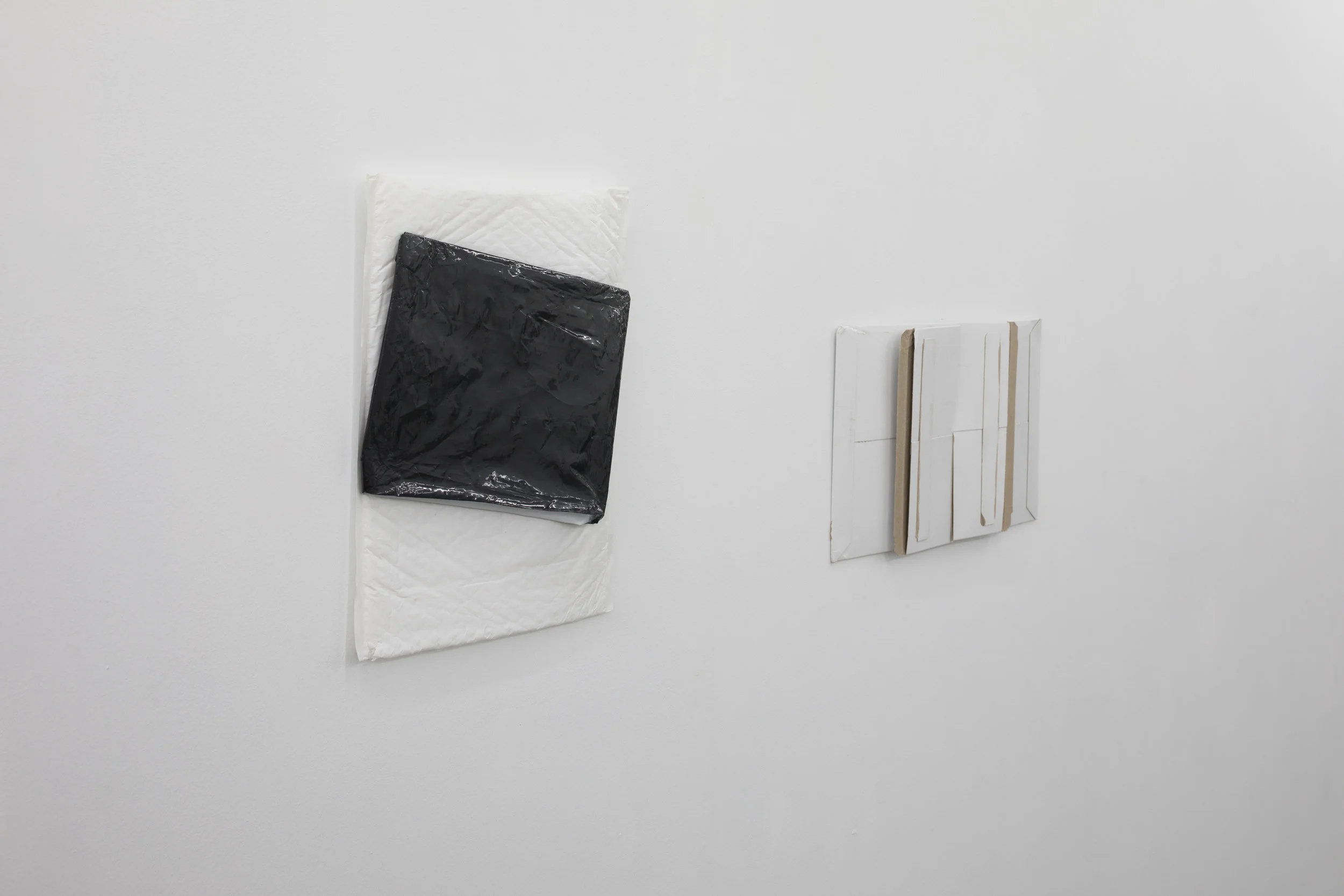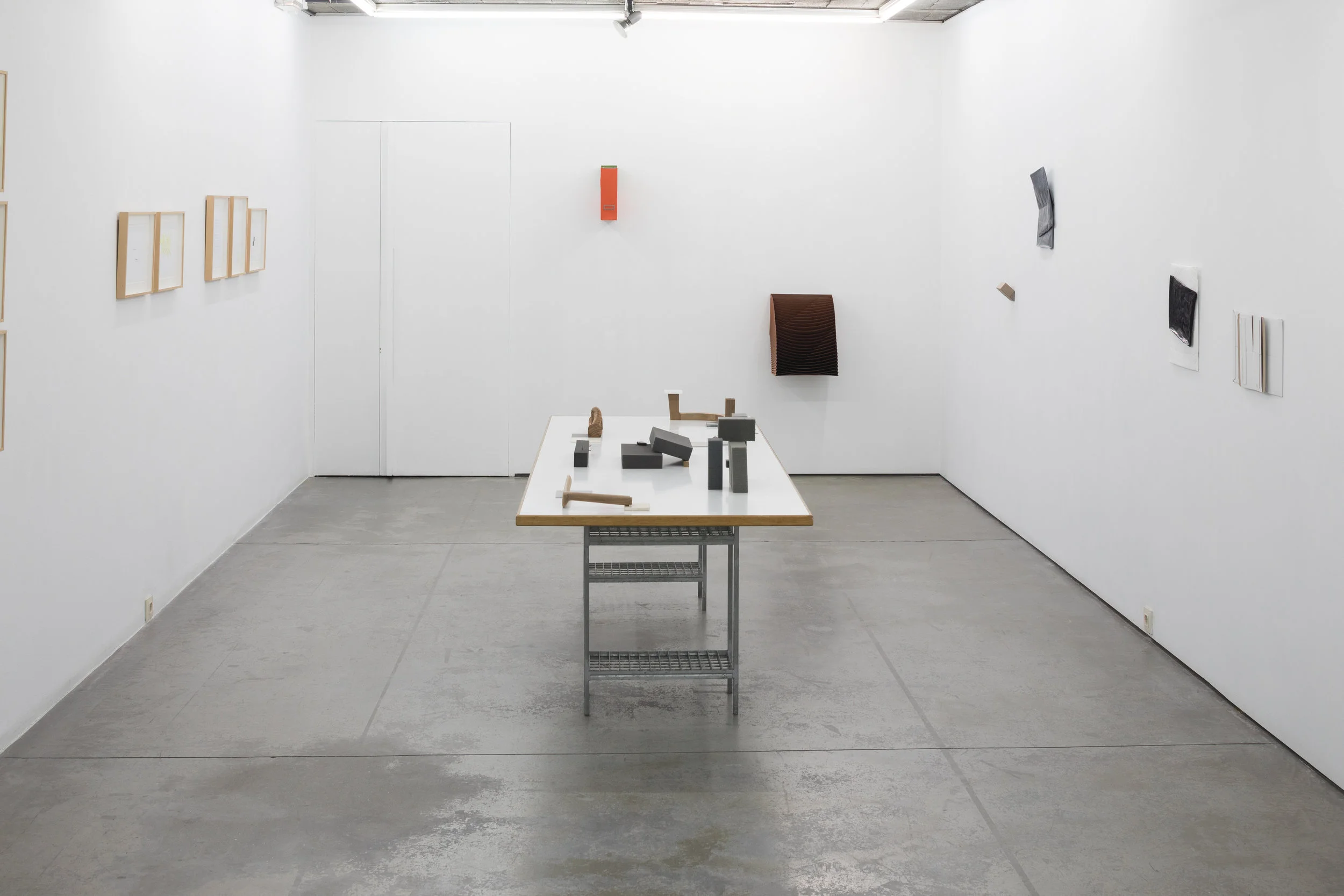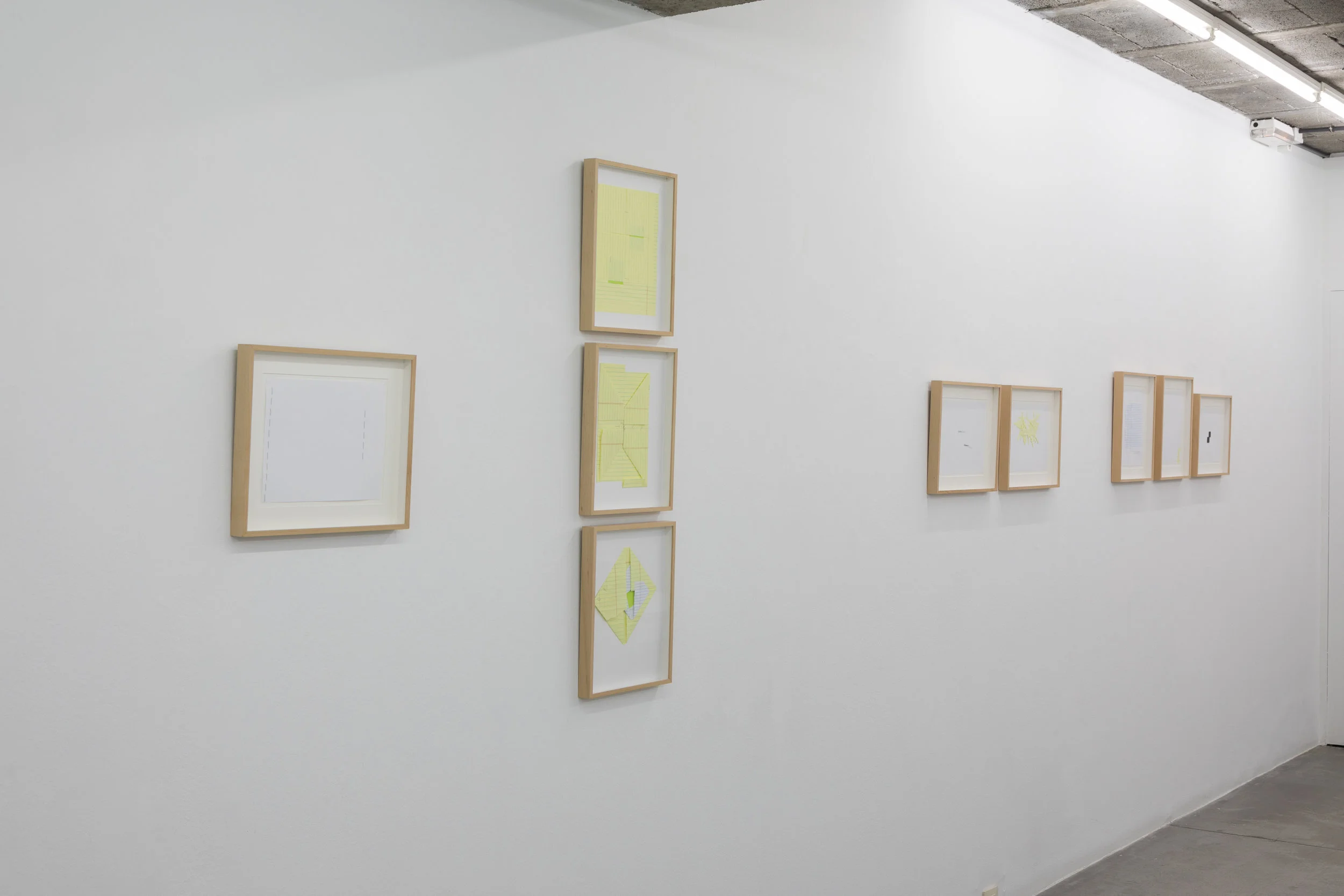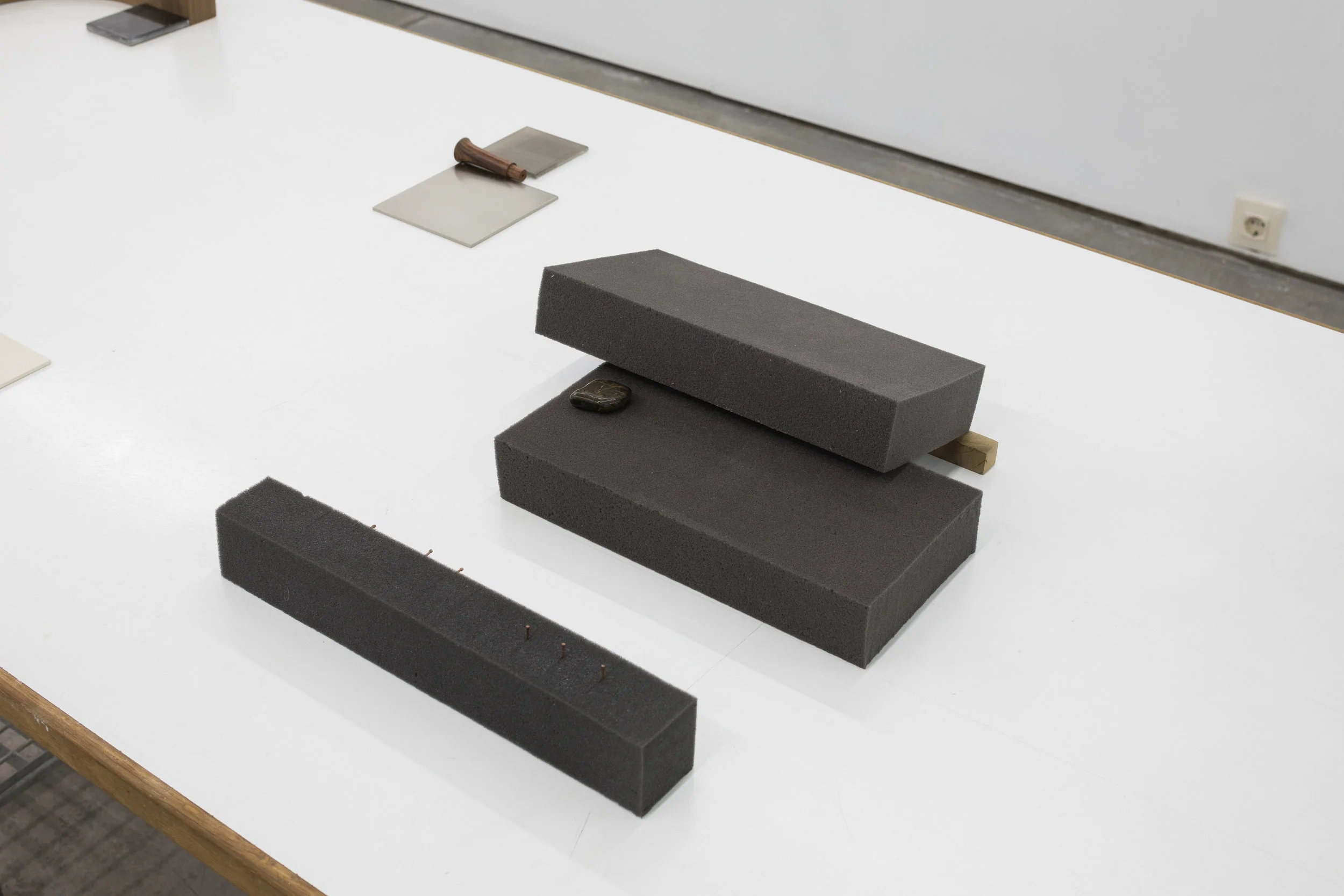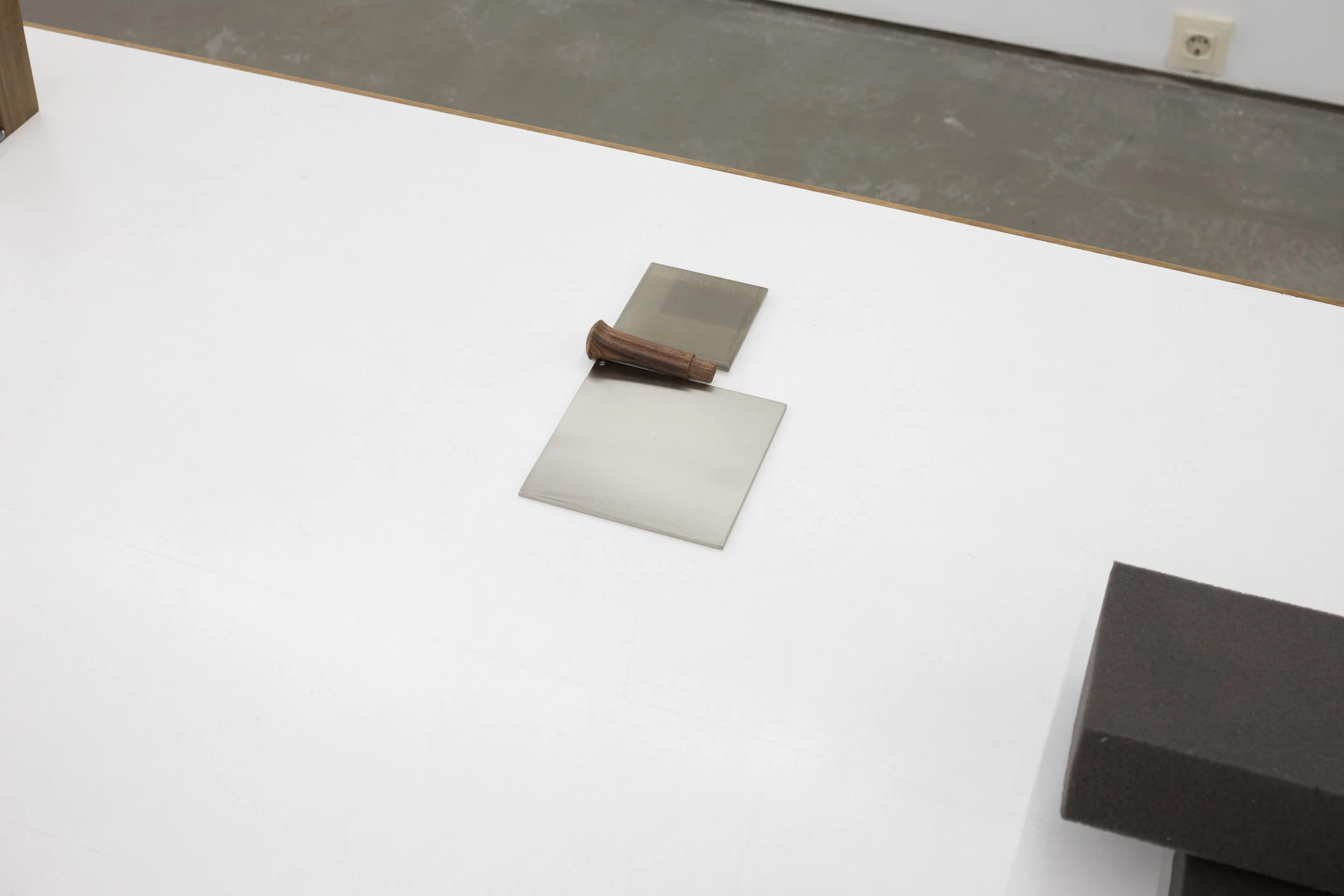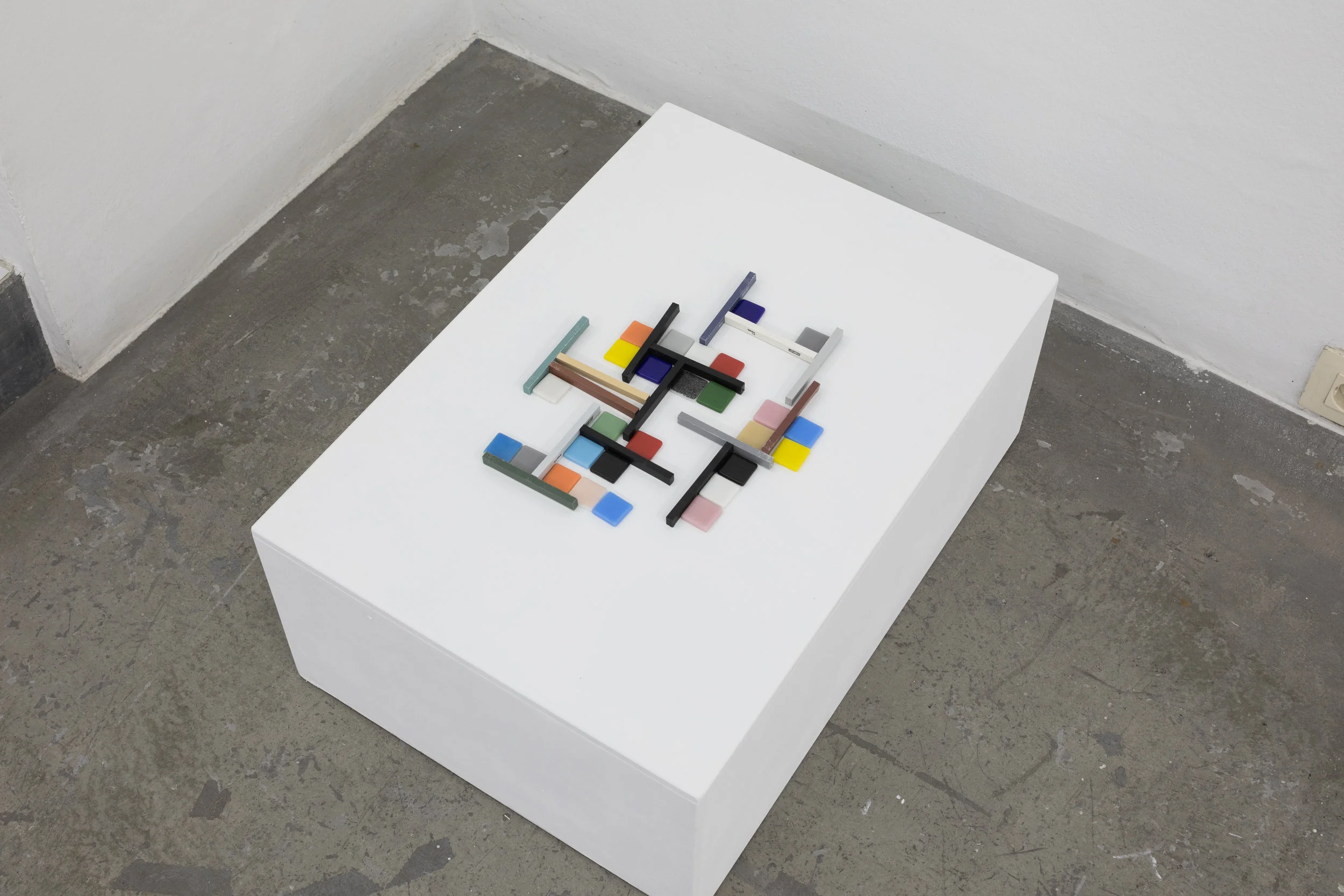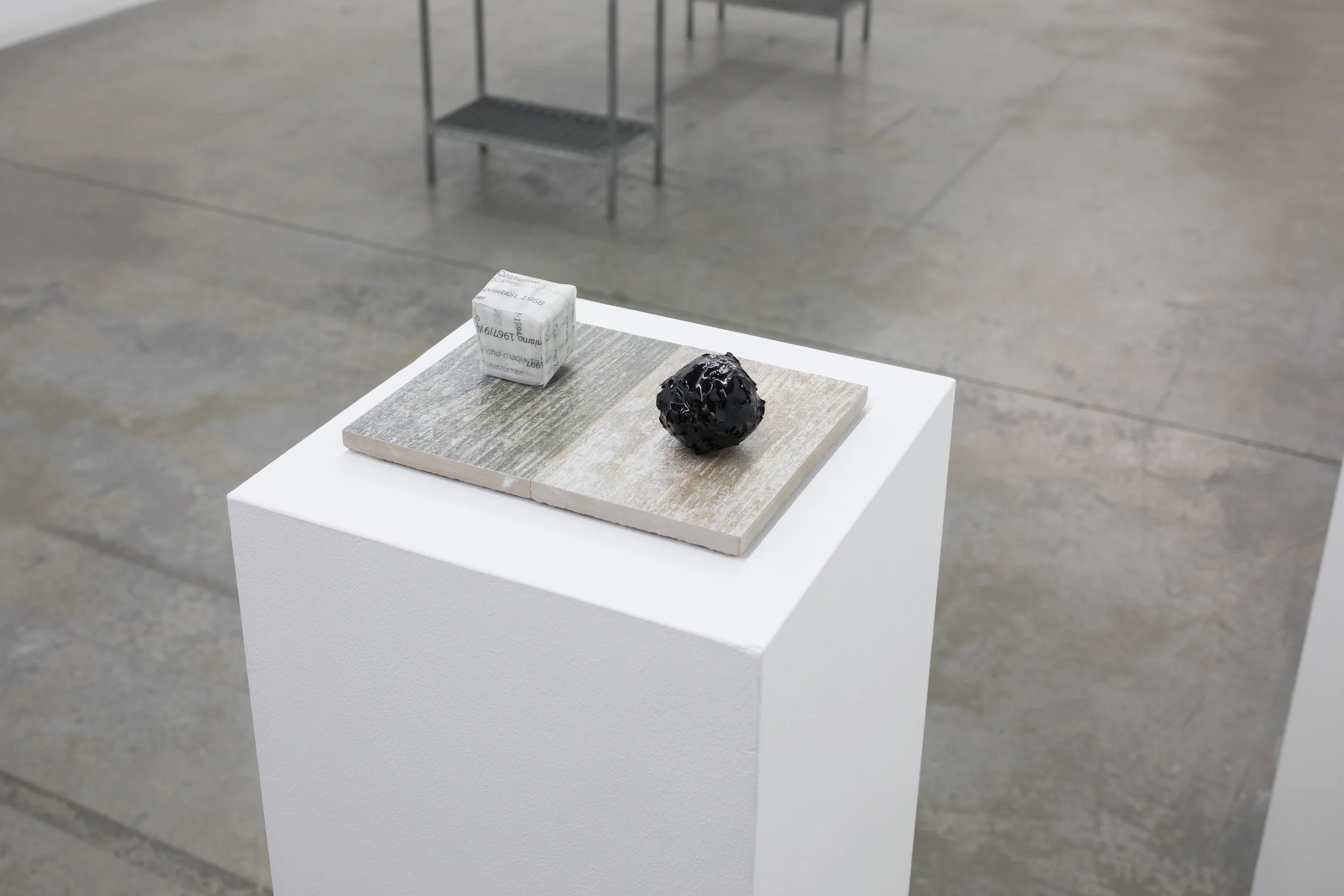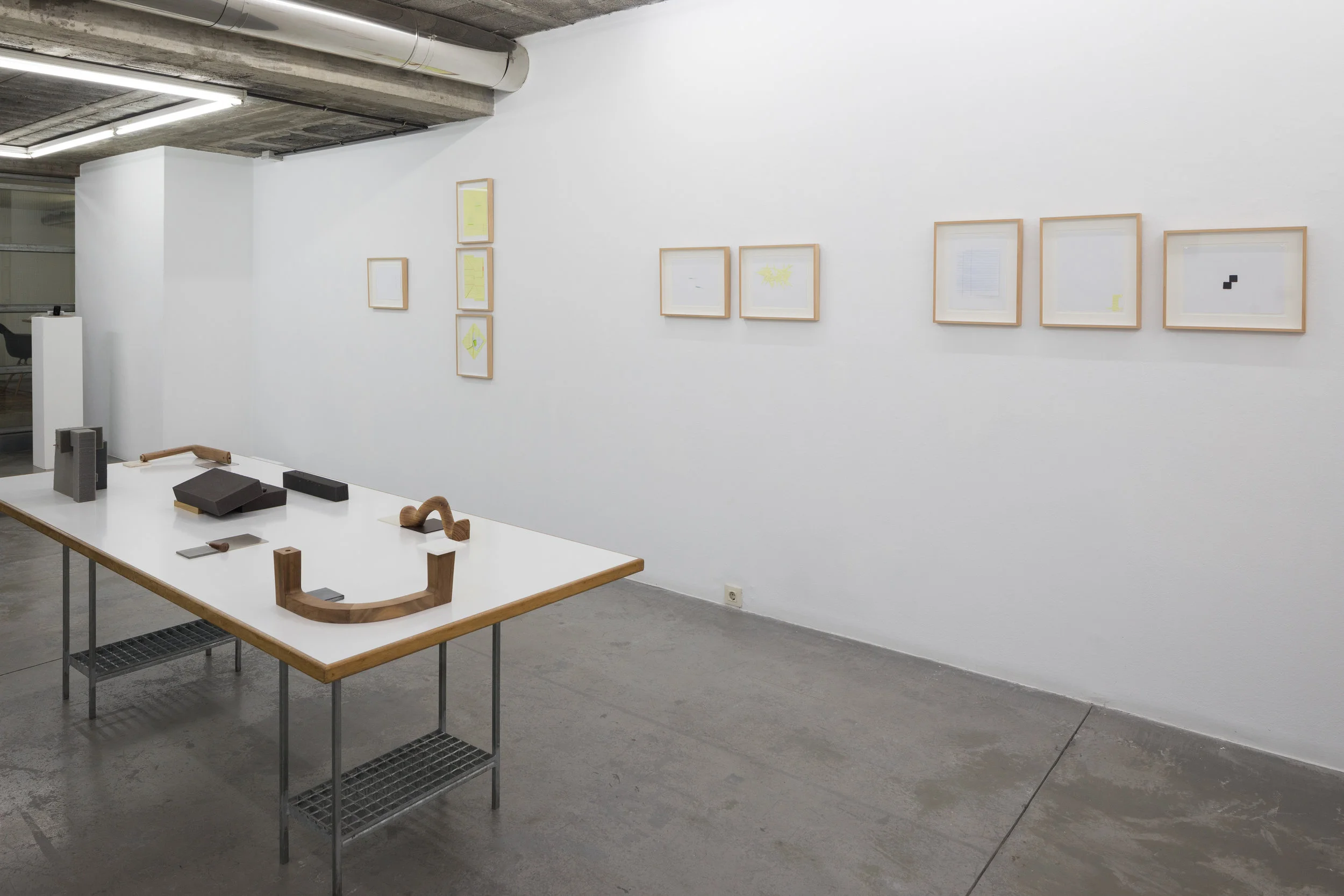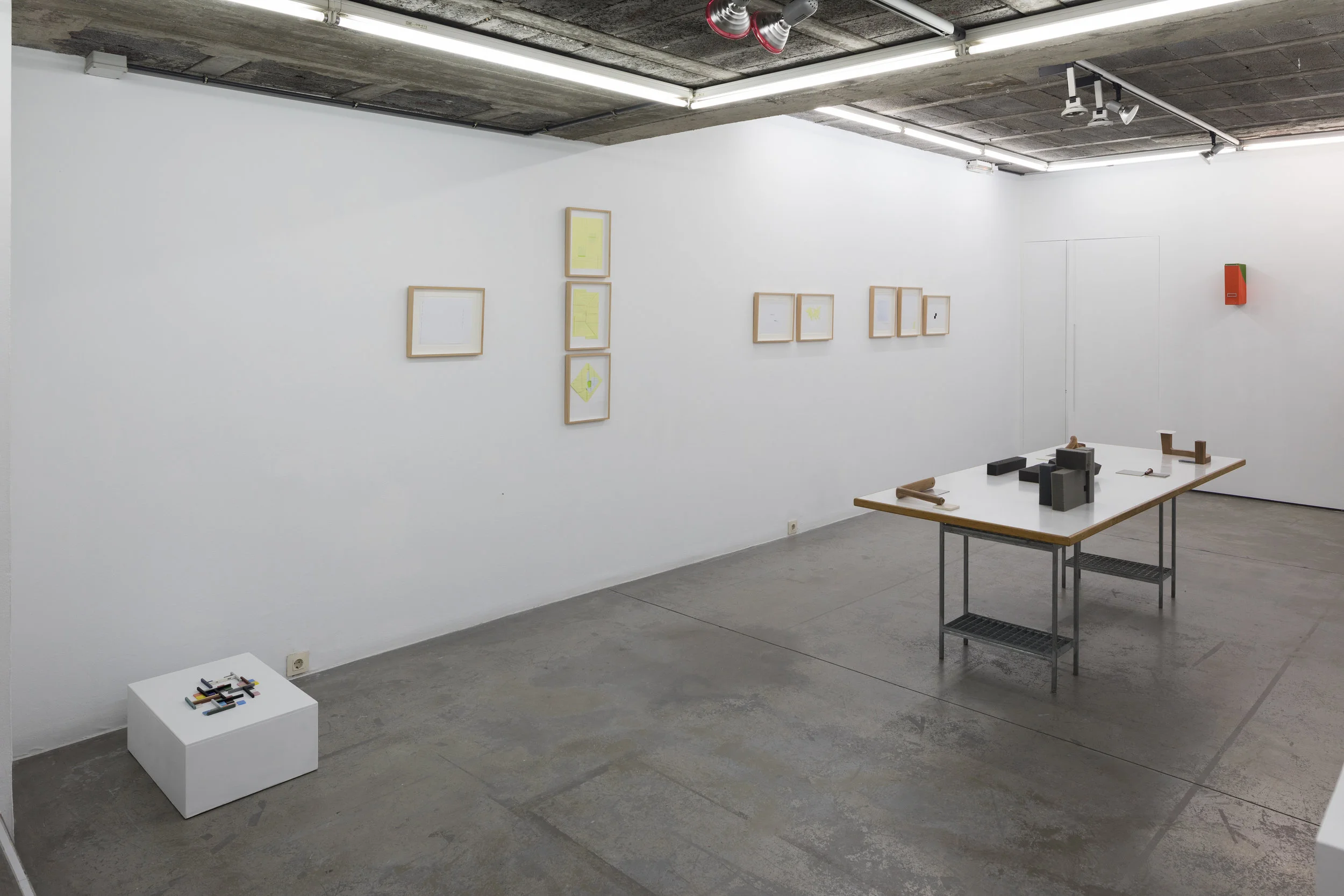
Artists don't work, I only work with artists!, 2019
Trinta Arte Contemporánea - Santiago de Compostela, Spain
July 11, 2019 - September 15, 2019
Curated by Roc Laseca
contact gallery trinta@trinta.net
Exhibition Catalogue (Spanish)
Artistic occupation has completely replaced artistic work. Making art today, and rather inscribing it in a system of human, productive, and labor relations, is at the opposite end of the revolutionary project of the artistic avant-garde. Art has not occupied life. It is life now, with all its embodied circumstances, that has occupied art.
The complete precariousness of work systems, labor instability, the relocation of tasks, and the obligation to perform functions that are in principle far removed from the interests and needs of art production, have radically alienated the artist's work system and, with it, His way of life. In the old avant-garde demand to blur the boundaries between art and life, art seems to have lost out. Life has prevailed. But it has turned out to be administrative life, which responds to neoliberal production apparatuses, which formulates and calculates executive plans, which sets schedules, and is due to the daily demands of efficiency and productivity. Art has led to an occupation that is torn between the old promises of the historical avant-garde about its autonomy, and the apparently necessary response to the productive demands of daily life.
However, in some extraordinary cases, art seems to have endured as a viral program that, wherever it is, uses the host to carry out, in a constant and imperceptible way, its purpose. Art has occupied the other's body, the institution, the apparatus of power, in an improbable symbiotic relationship that has yet to be resolved. One of these viral cases is that of Andrés Michelena, who developed his artistic work from his own experience of working life. For years, his work has been developed as a permanent action, occupying various work positions such as administrative, assistant, or coordinator of collections, galleries, or companies in the art industry. Barely having time to lock himself in the Studio and dedicate himself to the strange task of making art. For this reason, Michelena's decision was radical and honest: she was going to viralize his artistic research in the body of his professional performance.
His performance, which takes place during work hours, from Tuesday to Saturday from 11 a.m. to 5 p.m., makes use of the traditional codes established between employee and employer to discuss the modern meanings of work, productivity, and efficiency, typical of contemporary labor system, and those of occupation, performativity, and autonomy, historically claimed by artistic practice. One of the most visible consequences of this transformation of the artist's occupation is the replacement of work-as-commodity into work-as-process. An action that makes it possible to trigger more forms of knowledge (about their work, about their environment), fields of commitment (with their tasks, with their colleagues), and plans of relationality, highly informed, in this case, by the ins and outs of art. modern Latin American. In this professional performance, Michelena answers the phone in his employer's office, recycles discarded brochures from other exhibitions, attends to emails, or walks around in search of sensitive material for his work, which he devises and produces in the same office.
Performance is collective: it affects and is affected by other co-workers and influences the executive decisions of its employer. But, above all, this professional performance not only adds artistic objects to Michelena's catalog but also years of contributions to his working life. In the words of the artist: “No one could say I played fair,” is the title of one of the series included in this exhibition, which, in a certain way, could illustrate the attitude with which I approach production. for some years now. Maybe it is a euphemism, but I consider that more than a rebellious position, it is a position of resistance to the system. In fact, there is no rebellion in the signing of an employment contract by Michelena: her employer is invoking a figure unlikely professional who will adequately perform his or her duties. For her exhibition at Trinta, Michelena will work as a gallery assistant, forming part of the team in an unusual working relationship between artist and gallerist.
But since resistance does assume a defensive character, Michelena not only embodies his performance during her work hours but is also in charge of making art that looks like art. The resulting works are works with a persistent ironic character, and modernist aesthetic turns that reevaluate the traditional system of work production and resituate it in this new playful tension between the artistic-autonomous and the work-derived. These are sculptural works, and on paper, most of them, are halfway between the exercises of the preliminary courses of the Bauhaus (1928-1929) and the constructive thinking of his parents: Santos Michelena, the well-known public works engineer from Caracas, who created the first Automated Hydraulic Laboratory in Latin America, and Gladys Poggioli, a tenacious pastry chef from Caracas. But, even so, Michelena's radical honesty rests on her constant production of art that does not look like art - that is why every formalist description falls into a paradoxical game - she insists on a professional dedication that saves the potential bipolar unleashing and circumvents the fragmentation that the artist suffers in his work performance. The office is the artist's new romantic studio. Great workshop. A kind of culmination of the unfinished project that John Latham and Barbara Stevini devised in the sixties, through Placement Group, to infiltrate artists into each of the governmental, administrative, and, by extension, labor strata of society at the time. A total viral artistic occupation.
Roc Laseca




